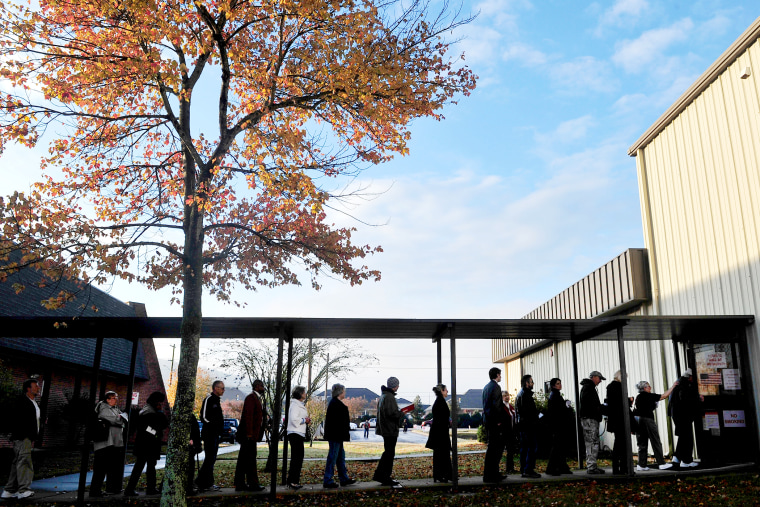For the first time since the Supreme Court gutted a key section of the Voting Rights Act, an Alabama town formerly covered by the law's requirement to get federal permission before changing its voting laws has agreed to return to federal supervision.
The city of Evergreen, Ala., which has a troubled history when it comes to race and voting rights, requested to be placed under federal supervision once again, through the little-used Section 3 of the Voting Rights Act. An attorney for the town told the New York Times that doing so would prevent potential future lawsuits over voting law changes.
With the Supreme Court's ruling last summer striking down the formula for determining which states and localities must have their election law changes supervised by the Justice Department, Section 3 has emerged as the best hope for returning federal oversight to jurisdictions that engage in voting mischief. The Justice Department has asked federal courts to place Texas and North Carolina under federal supervision again. Texas has insisted measures that disenfranchised minority voters were actually just partisan actions aimed at hurting Democrats, while North Carolina is resisting turning over legislator emails that would reveal the thinking behind that state's restrictive voting law. Texas' 2011 redistricting plan was sunk when emails were revealed showing Republican lawmakers speaking frankly about how to weaken the Latino vote.
When it comes to being placed under federal supervision, Evergreen is likely to be the exception to the rule. That is, most states, like Texas and Alabama, will try to fight having their voting law changes overseen by the Justice Department. Rick Hasen, a voting law expert and law professor at UC-Irvine, writes that Evergreen "is not much of a trendsetter for other cases."
Congress could always pass a new legislative formula deciding which jurisdictions would be covered by the requirement that they preapprove their voting law changes with the Justice Department. With Republican controlled states eagerly using their newfound freedom to pass restrictive voting laws however, that seems unlikely.
